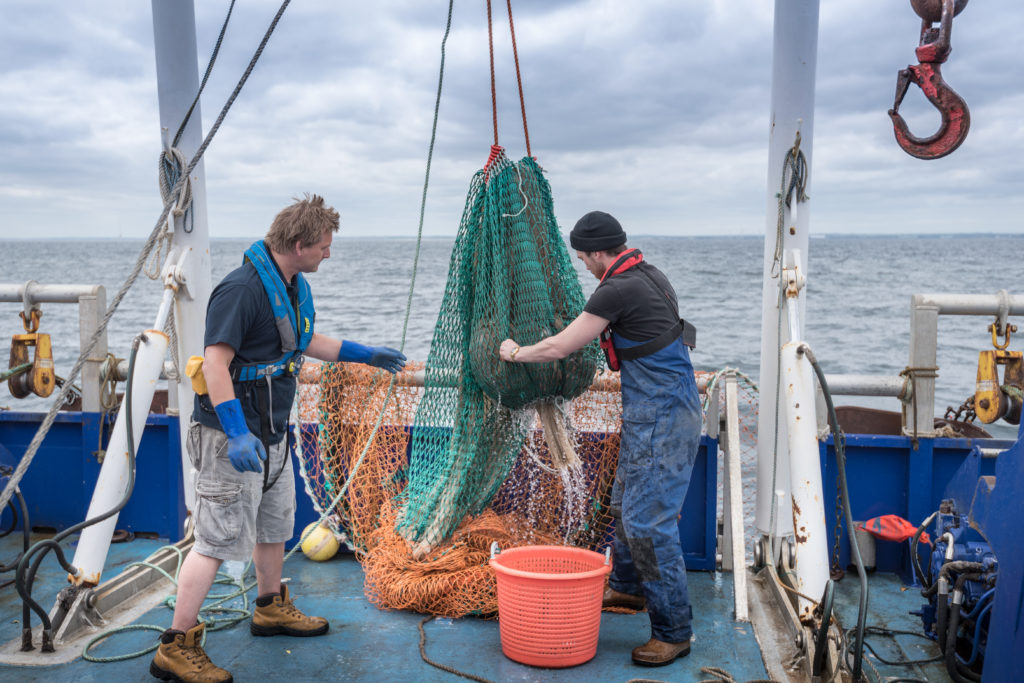
Project INSIGHTS Report
Gauging the potential of occupational pluralism in rural Atlantic Canada
Executive Summary
Labour force challenges are being experienced across the country as a result of an aging population, with many workers set to retire over the next decade, coupled with a lack of young people to replace them. But the challenges in the Maritimes are acute, and some are unique to the region. Specifically, the seasonal nature of many rural industries in the Maritimes makes it harder for employers to compete for workers seeking year-round employment and higher incomes. To the extent that workers in seasonal jobs are inactive in off-seasons, they also contribute less than their full potential to the overall economy of the region.
This project assessed the potential contribution of expanded and modernized seasonal occupational pluralism — where workers combine different jobs in different parts of the year to generate their annual incomes — to address the labour supply challenges facing rural-seasonal industries in the Maritimes. The project also outlined policy and program options to encourage or enable greater seasonal occupational pluralism, which would grant employability to these workers year-round and increase their contribution to and engagement in the economy.
Contributor
Stacey Young,
Strategic advisor at FSC
Date PUBLISHED
August 2023
Partners
Higher Education Strategy Associates
Locations
Atlantic Canada
INvestment
$188,708.00
Research Report:
Gauging the Potential of Occupational Pluralism in the Rural Maritimes

Key Insight #1
About 12% of workers across Atlantic Canada were seasonally employed in 2022, with seasonal work more common among men, younger workers, and workers without a university credential.
Key Insight #2
At least 6.5% of Atlantic Canadian workers engage in seasonal occupational pluralism, with the highest rate at 9.3% in P.E.I.
Key Insight #3
Increasing seasonal occupational pluralism in the Maritimes could add the equivalent of 20,966 more full-time workers.

 The Issue
The Issue
The size of the rural labour force in the Maritimes declined over the last decade, while the number of older workers increased. Similar to other parts of the country, these workers have already started to age out of the labour force in large numbers and there are not enough young people to replace them, a trend that will continue to worsen.
Already, the highest job vacancy rates in the Maritimes are in predominantly rural regions. These trends are especially concerning in key rural seasonal industries. The Maritime region overall and especially its rural regions has heavily relied on seasonal primary production industries and their exports of semi-processed commodities, as well as tourism. These industries were characterized by persistent oversupply of semi-skilled workers and labour-intensive production models reliant on this readily available low-cost labour. However, things are changing.
Public policies, regulations, programs and services require updating and innovation to meet the new demands of rural seasonal industries in the Maritimes. Population growth, agricultural resurgence and demographic trends are combining to create an environment that requires a dramatic shift in public policy. Seasonal occupational pluralism – when workers combine different jobs in different parts of the year to generate annual incomes – holds promise for addressing these interconnected challenges.

 What We’re Investigating
What We’re Investigating
This project explored the extent of labour supply challenges facing rural communities and seasonal industries in the Maritime provinces, like fisheries and fish harvesting, and to what extent increasing seasonal occupational pluralism could address these challenges. The project used several datasets from Statistics Canada and panel surveys to generate estimates of the extent of seasonal employment and seasonal occupational pluralism in the Maritimes currently, and the potential benefits of increasing it in future.
The project also conducted policy research and expert interviews to explore seasonal occupational pluralism as a way to help address labour supply shortages in critical seasonal industries and to increase labour supply in rural communities, offering more attractive livelihoods for local workers and migrants. The project considered policy and program options surrounding the quality of seasonal employment, employment insurance, education and training, and immigration to better enable and encourage seasonal occupational pluralism.
 What We’re Learning
What We’re Learning
About 12 per cent of workers across Atlantic Canada were seasonally employed in 2022 with the rate being roughly stable since 2013.
The project classified seasonal workers in the Maritimes into five groups:
- Long-term, low-wage workers who tend to be older and have a long-term reliance on EI.
- Tradespeople and artisans who tend to have a higher level of transferable skills and be self-employed.
- Non-technical business managers who tend to work in tourism-related enterprises or support roles such as HR and accounting in other industries.
- Advanced professional and technical experts who tend to be highly skilled, educated and earn higher incomes.
- Students who tend to work in summer jobs, on a part-time basis while studying or immediately following graduation.
At least 6.5 per cent of Atlantic Canadian workers engage in seasonal occupational pluralism, with the highest rate at 9.3 per cent in PEI. Specific occupationally plural pairings are especially common in:
- Manufacturing and agriculture, forestry, fishing,
- Mining, oil, utilities, construction and agriculture, forestry and fishing
- Recreation, food and wholesale, retail, trade and transportation
- Education, health, social assistance and recreation
The project estimated that increasing seasonal occupational pluralism could add some 1.1 million weeks of full-time work in the Maritime provinces or the equivalent of 20,966 additional full-time workers if normalized over a 52-week year. The project identified construction and trucking industries as more consistent work that could support more seasonal occupational pluralism, allowing workers to continue working in seasonal industries during peak seasons.
The project explored four areas in which policy change can support more seasonal occupational pluralism:
- Improve the quality of seasonal employment by establishing seasonal worker rights through legislation and regulation, strengthening co-ordination between employers to share their workforce, offering seasonal workers portable benefits, and increasing HR management across seasonal industries with a focus on equity, diversity, inclusion and safety.
- Realign EI with the evolving rural economy by making reforms to the existing program to amplify incentives for seasonal occupational pluralism without compromising the needs of the most vulnerable. Or, by exploring the creation of a separate Seasonal Worker Employment Support Program that would better meet the needs of seasonal workers.
- Educate and train workers specifically for seasonal occupational pluralism as it often requires an individual to acquire skills for more than one field of work and have a strong baseline capacity for learning and adaptation. Education and training providers in the Maritimes have to date made few efforts to support the development of such multi-skilling, focusing more narrowly on skill sets required for careers in year-round jobs.
- Expand recruitment of international immigrants with skills and aspirations appropriate to careers in rural-seasonal industries as currently most immigration programs are not designed to address the basic and long-term labour supply and population challenges facing rural regions, with most having a clear bias towards full-time, full-year work.
 Why It Matters
Why It Matters
While demographic pressures persist, seasonal industries contributed as much as $4.3 billion and employed 88,000 workers in the Maritimes in 2021. Traditional sectors in the Maritimes are regaining strength while new and large-scale developments are rapidly taking shape in the energy field and other sectors. New markets particularly in Asia have created new opportunities for traditional industries including the fishery and agriculture sectors, even as the climate crisis and geopolitical competition have increased the value of these and other regional assets within North America.
This project provides detailed industry and region-specific labour market information to inform decision-making of stakeholders in the Maritimes. The research results offer policy makers, industry, and education and training providers concerned about labour supply in rural communities and seasonal industries a set of policy options they likely will not have considered previously.
HOW TO CITE THIS REPORT
Young, S. (2023) Project Insights Report: Gauging the Potential of Occupational Pluralism in Rural Atlantic Canada. Toronto: Future Skills Centre. https://fsc-ccf.ca/projects/occupational-pluralism-in-rural-atlantic-canada/




